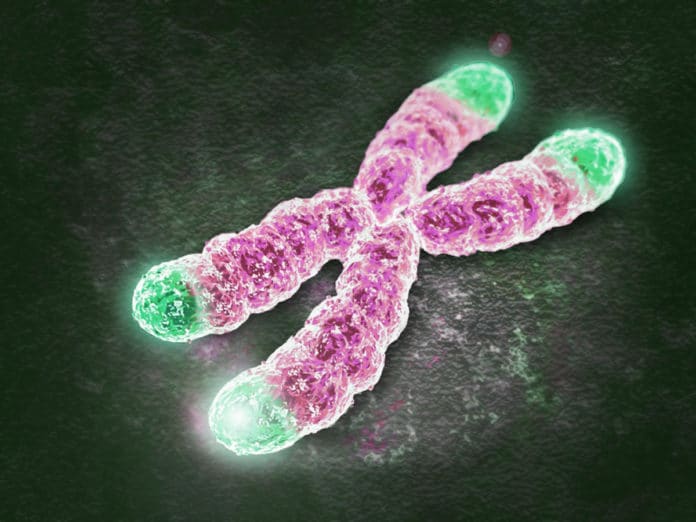
We’ve told you to watch your glycemic load, and our Facebook Group typically has excellent, extended discussions on weight-lifting and other strength training exercises (hint, hint). There’s a certain amount of effort and willpower required to getting your body into serious shape, so it’s nice to know there are easier, more basic things we can do that can have a significant effect on our very building blocks. We’re talking about our DNA. Specifically, we’re talking about telomeres, the caps at the end of each strand of DNA that protect our chromosomes (most often compared to the piece of plastic at the end of your shoelace).
Over our years on this planet infections, bacteria, even things like chronic stress can shorten our telomeres. And there’s a growing body of research suggesting that measuring them in midlife can be accurate predictors of who gets disease and — in some studies — who dies early. They’re our canaries in the coal mine, so to speak and the good news is that short interventions can do much to improve the aging of your cells. But don’t just listen to us, listen to Elissa Epel, who co-authored a book on the subject: “Eat your damn vegetables. It’s not really rocket science when it comes to maintaining telomeres,” she told Dave Asprey (he of Bulletproof fame) on his podcast. “We can talk about more extreme hacking ways … but I just want to point out this really moderate stuff. If you do that every day for decades it adds up and it matters.” There is more, of course. Brisk walking at least 3-4 times a week for an average of 40 minutes help, as does avoiding spending most of your day sitting down. It’s not too late, in other words. Get out and walk, eat some vegetables, some fish and avoid too much red meat and sugar. Don’t do it for us. Do it for your telomeres.



